SLVSCJ5C December 2015 – September 2024 TPS7H3301-SP
PRODUCTION DATA
- 1
- 1 Features
- 2 Applications
- 3 Description
- 4 Revision History
- 5 Pin Configuration and Functions
- 6 Specifications
- 7 Detailed Description
-
8 Application and Implementation
- 8.1 Application Information
- 8.2
Typical Application
- 8.2.1 Design Requirements
- 8.2.2
Detailed Design Procedure
- 8.2.2.1 VDD/VIN Capacitor
- 8.2.2.2 VLDO Input Capacitor
- 8.2.2.3 VTT Output Capacitor
- 8.2.2.4 VTTSNS Connection
- 8.2.2.5 Low VIN Applications
- 8.2.2.6 S3 and Pseudo-S5 Support
- 8.2.2.7 Tracking Startup and Shutdown
- 8.2.2.8 Output Tolerance Consideration for VTT DIMM or Module Applications
- 8.2.2.9 LDO Design Guidelines
- 8.2.3 Application Curve
- Power Supply Recommendations
- 9 Layout
- 10Device and Documentation Support
- Mechanical, Packaging, and Orderable Information
Package Options
Mechanical Data (Package|Pins)
- HKR|16
Thermal pad, mechanical data (Package|Pins)
Orderable Information
6.6 Typical Characteristics
For Figure 6-1 through Figure 6-10, (3 × 150-µF T530D157M010ATE005 tantalum + 4 × 4.7-µF MLCC) or equivalent capacitance/ESR are used on VTT output
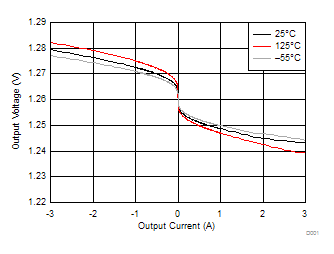
| VDD/VIN = 3.3 V | VDDQSNS = 2.5 V |
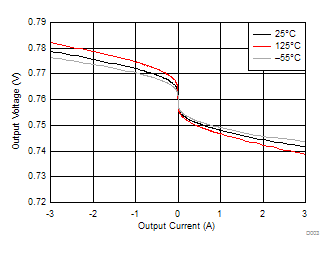
| VDD/VIN = 3.3 V | VDDQSNS = 1.5 V |
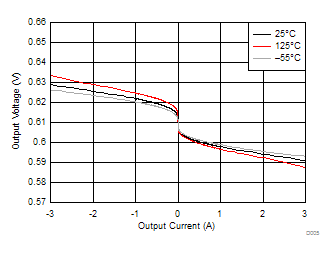
| VDD/VIN = 3.3 V | VDDQSNS = 1.2 V |
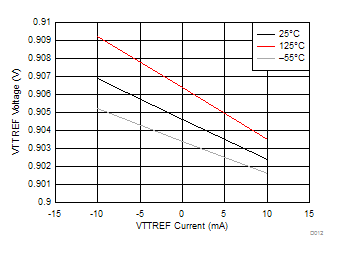
| VDDQSNS = 1.8 V |
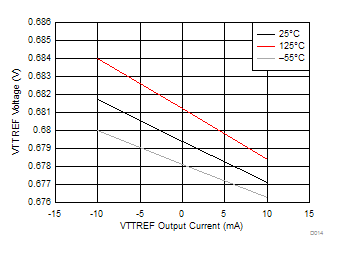
| VDDQSNS = 1.35 V |
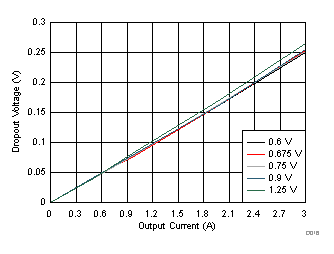
| VDD/VIN = 3.6 V |
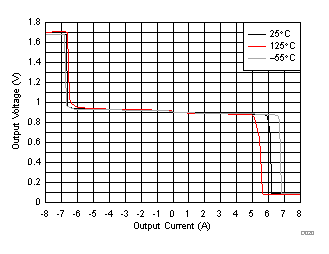
| VDD/VIN = 3.5 V | VDDQSNS = 1.8 V | |
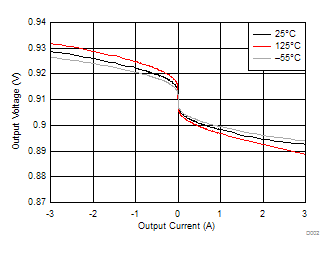
| VDD/VIN = 3.3 V | VDDQSNS = 1.8 V |
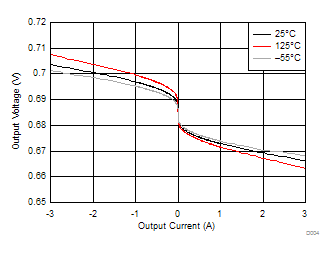
| VDD/VIN = 3.3 V | VDDQSNS = 1.35 V |
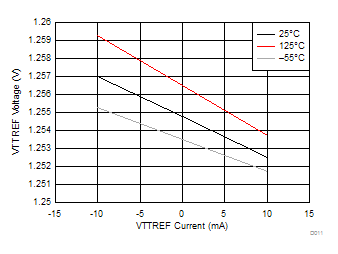
| VDDQSNS = 2.5 V |
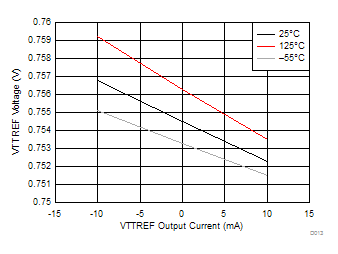
| VDDQSNS = 1.5 V |
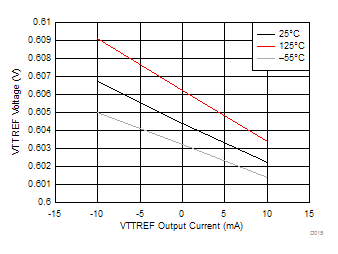
| VDDQSNS = 1.2 V |
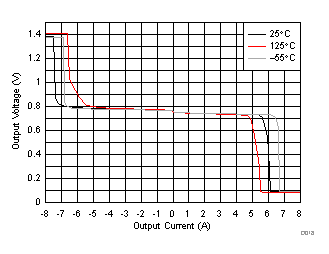
| VDD/VIN = 3.5 V | VDDQSNS = 1.5 V | |